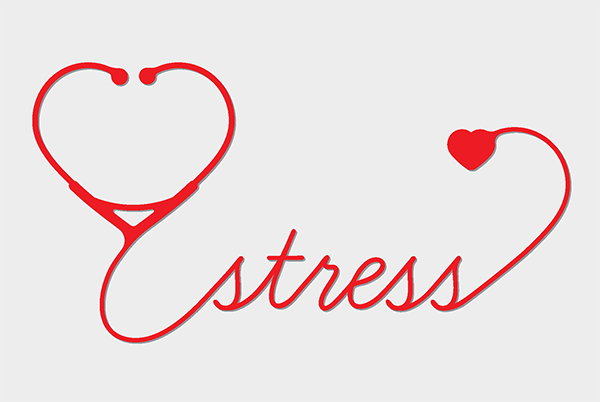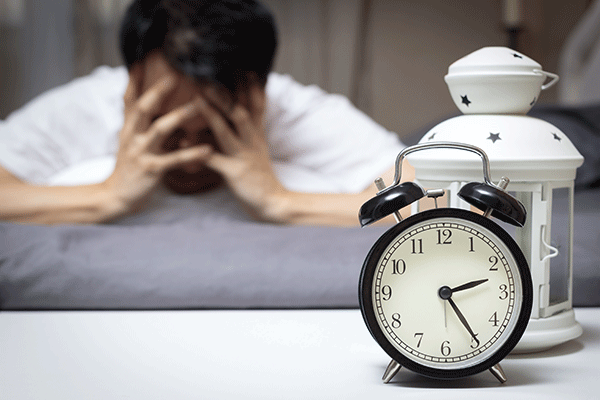Do you Really Know How Stress is Affecting you and your Body?
 As April is stress awareness month, we started to think about stress and how people respond to it in the workplace. Although stress and other mental health illnesses are still often considered as taboos and people still struggle to vocalise when they are experiencing the effects of stress. Gradually more and more people are accepting stress as a social norm and increasingly understand how to talk about and help those affected by it.
As April is stress awareness month, we started to think about stress and how people respond to it in the workplace. Although stress and other mental health illnesses are still often considered as taboos and people still struggle to vocalise when they are experiencing the effects of stress. Gradually more and more people are accepting stress as a social norm and increasingly understand how to talk about and help those affected by it.
But what we did realise is that not as many people understand just how much stress can affect your body and overall health. We come across so many people in the workplace that have just accepted stress is part of their day to day lives, they have a job to do and they will do it, no matter how stressed they become as a result.
Therefore we wanted to take the time to help you understand some of the main ways stress can affect your health, and later in the month we will be giving you some easy ways to help reduce stress at work and in your life in general.
Acute and Chronic Stress
Is all stress really a bad thing?
Well actually the answer is no. Acute stress could be a reaction to an immediate threat, often triggering your innate “fight or flight” response. Once the stress causing factor has passed then your brain will return to normal working levels without having any long term effects.
However, chronic or long-term stress can have the most negative impact on your health and is what you should be concerned about the most in terms of the effects it can have on your mind and body.
Brain
Chronic stress increases the hormone cortisol which can have an effect on many brain functions, and as a result put you at additional risk of mood disorders and other mental health issues.
These effects can include:
Bye bye brain cells – Excess cortisol creates glutamate which creates free radicals (unattached oxygen molecules). As a result they attack brain cells causing them to rupture and die.
Memory loss – Stress can interfere with the neurotransmitters which makes it difficult to think straight and retrieve your memories. In addition to this cortisol can stop the generation of new neurons in the hippocampus, the part of your brain responsible for storing memories
Fear & anxiety – stress builds up in your amygdala, you brain’s fear centre, when under chronic-stress the size, activity and neural connections increase in this area, making you more fearful.
Dementia & Alzheimer’s – research has found that stress can increase the risk of Alzheimer’s and Dementia, as well as hastening the progression of dementia
Sleep
 The average adult (26 – 64 years old) should get between 7 and 9 hours sleep a night. But we imagine a number of adults can remember a time or a number of times this hasn’t happened.
The average adult (26 – 64 years old) should get between 7 and 9 hours sleep a night. But we imagine a number of adults can remember a time or a number of times this hasn’t happened.
As already established, stress creates your natural “fight or flight” response. During this response your body goes into hyperarousal, which helps your nervous system go into a state of alert. However if this turns into chronic hyperarousal then this can have negative effects on your sleeping patterns and cause insomnia.
Sleep is an essential function that helps our bodies recharge and repair themselves, so with disturbed and reduced sleep patterns the effects of stress will only continue and likely get worse.
Heart and Blood
There is no direct correlation between stress and heart disease or heart attacks, but there is evidence to suggest that it can contribute to an increased risk of a cardiovascular disease.
In addition to this when in the “fight or flight” mode your heart beats faster and constricts blood vessels. As a result of this your body experiences an increase in blood pressure. If this was a case of acute stress then this isn’t such a concern as your body will quickly return to normal. But in the case of long-term stress this can have prolonged effects on our blood pressure, due to the longevity your body is in this alert mode.
Muscles
If you are stressed your muscles will naturally tense up to protect yourself from injury, relating back to the “fight or flight” response. However, if you are under constant periods of stress without giving your body the opportunity to relax, this can cause headaches, back and shoulder pain and general aching in your body.
Reproductive System
It has been found that stress can also impact the reproductive system and sexuality for both men and women. Firstly, stress can affect your periods, making them irregular or even more painful.
The increased level of hormones can interfere with the hormones that specifically increase your libido.
A study has found that women with the highest levels of the stress-related substance, alpha-amylase were about 12% less likely to get pregnant each cycle than those with the lowest concentrations.
Stress not only can affect your sexuality and reproductive system, but in extreme cases like losing your job can increase the chances of premature labour.
Immune System
 Our immune system is our body’s first line of defence, so you are going to be sure to want to protect that when you understand how stress can impact it.
Our immune system is our body’s first line of defence, so you are going to be sure to want to protect that when you understand how stress can impact it.
Stress can create chronic inflammatory conditions and can lower your immunity. Therefore increasing your vulnerability to infectious and autoimmune diseases. Cortisol suppresses inflammation during the response to stress, however during sustained periods your body can develop a resistance and therefore your body no longer responds correctly to it.
Chronic stress also lowers the amount of protein that is essential to signal other immune cells. Without these your body becomes more susceptible to contracting acute illnesses and will take longer to heal.
Make Sure you Look After your Body
We could carry on talking about the many ways stress impacts your health, but we have covered some of the key and most impactful ones we can think off.
The most important thing to remember is to not let stress take over your life both at work and at home. And make sure you make the effort to practice stress relieving techniques and activities.
If you want more help with stress in the workplace find out more about our occupational health services, or call our team today on 01666 503686.




